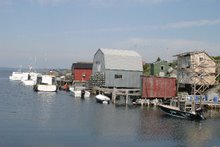 Experts collect data on growth of coral reefs in Mina Al Fahal area off Oman.
Experts collect data on growth of coral reefs in Mina Al Fahal area off Oman.Realty projects threaten reefs
By Sunil K. Vaidya, Bureau Chief
Muscat: Rich coral colonies in Oman's waters need close monitoring to protect them from threats that is posed by various elements, including development projects that are sprouting like mushrooms.
Oman is rapidly becoming an important destination for global tourists, especially the diving aficionados, who get drawn to this country's virgin beaches, pristine blue sea water and rich coral colonies, which can be very important habitats for fish and some of the other marine life.
The rising inflow of tourists is good for the country's economy as development is also rapidly increasing, but the flip side is that it also poses threat to marine life along Oman's 1,700 km coast.
"In the Gulf of Oman some of the best coral is found around Muscat, the Damaniyat Islands and in Musandam. Unfortunately corals here and around the world are suffering from various impacts," Dr Barry Jupp, a senior Marine Scientist with the Ministry of Regional Municipality, Environment and Water Resources, told Gulf News yesterday. "With rapid development of tourism there will be increasing impacts on reefs."
Development projects
In fact, marine scientists around the world are predicting that over 50 per cent of the coral reefs in the world may be destroyed by 2030.
Oman has witnessed major projects along the beaches in Muscat and a couple of more are coming up fast. "Sedimentation from coastal construction is one of the major threats to corals in Omani waters," Dr Jupp reckons.
Talking about the human impact on corals, Dr Jupp said: "Fishing activities, especially from abandoned nets, traps and anchor damage, pose a big threat to corals in Omani waters." He said that the marine environment department in Oman was making every effort to educate fishermen about the danger their activities could pose to corals.
"Litter and pollution such as oil spills from passing tankers also pose threat to this nature's wonder," felt the marine scientist, who is working hard to ensure that the corals in the Omani waters are protected. Interestingly, according to an estimate 16-17 million barrels of oil cross Musandam every day.
Of course, he pointed out, natural impacts such as up welling-related effects of low temperature and high nutrient levels, fluctuating temperatures, predation by the Crown-of-Thorns Starfish, storm damage, diseases, and "coral bleaching", also pose threat to corals in Omani waters.
Dr Jupp said: "Coral can be sensitive to environmental changes. A coral reef can easily be swamped in algae if there are too many nutrients in the water. Coral will also die if the water temperature changes by more than a degree or two beyond its normal range or if the salinity of the water drops."
Important habitat
Coral reefs are important habitats for fish, lobsters and cuttlefish, and are increasingly important for diving tourists in Oman, said Dr Jupp.
Taking personal interest in monitoring of coral growth as well as threat posed by various elements, Dr Jupp had placed modern data collection gadgets five metres under water in Mina Al Fahal area to monitor various impacts on corals but were stolen.
"In spite of the theft we have managed to log important data about light and temperature impact on corals," he revealed.
Talking about the development projects that have or are coming up along Oman's coastal areas, Dr Jupp said that there was a system in place to monitor this. "For every project the developer has to acquire Environment Impact Assessment (EIA) certificate," he said. However, the marine scientist added that EIA was a primary assessment of the impact that activities like dredging, reclamation etc could have on the marine life.
"Still threat persist," he reiterated, adding that Oman was not bad as quite a lot of regulations were in place and Ministry of Regional Municipality, Environment and Water Resources strictly monitors the adverse impact of any activities on marine life in the area.

1 comment:
It's only going to get worse in the future in area like Oman, as secluded area's become more and more active to tourist activities in the future, this is going to be the result. The only way to prevent this from happening is for the government to turn some of the area into region these active are prohibited from taking place, and having only a few individual well monitored areas, like the beach situation on Hawaii that we learned about in class.
Post a Comment